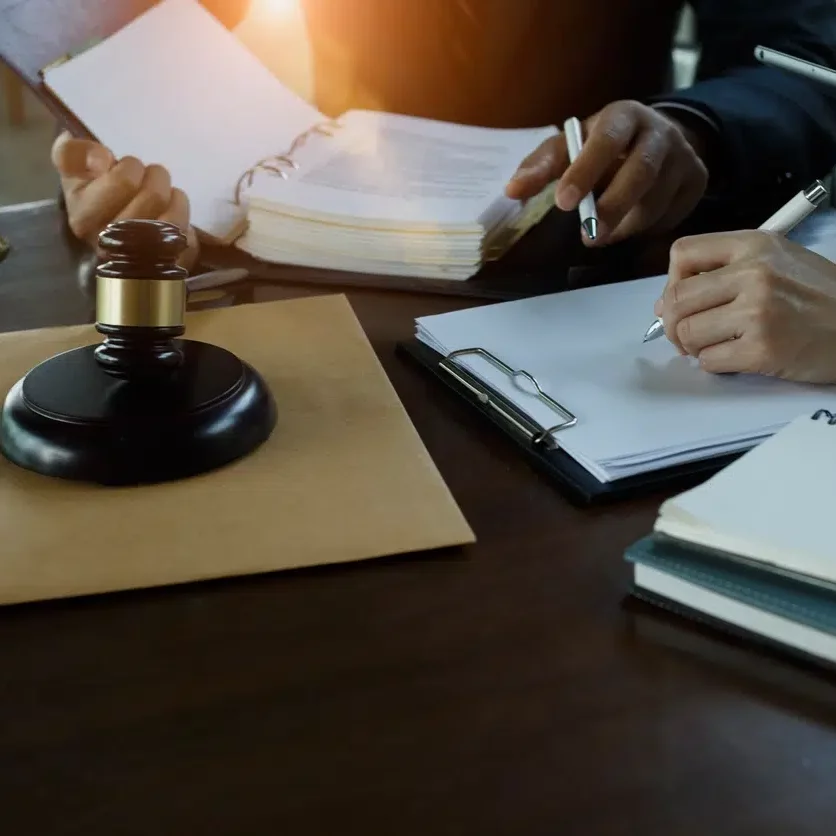Understanding Holographic Wills in Arizona
Estate planning is an essential process for ensuring that your assets are distributed according to your wishes after your passing. A critical component of estate planning is creating a valid will. For Arizona residents, understanding the different types of wills, including the holographic will, is crucial. A holographic will, also known as a handwritten will, is a form of last will and testament that can be recognized under Arizona law if it meets specific criteria.
This article will explain what it is, what the validity requirements are, and whether you should or shouldn’t do it.
Is a Holographic Will Valid in Arizona?
A holographic will, often referred to as a handwritten will, is a legal document with testamentary intent entirely written and signed by the testator. According to Arizona law, specifically ARS 14-2502 and ARS 14-2503, a holographic will is considered valid if it meets certain criteria.
Although a handwritten will is recognized by the state of Arizona, that does not mean it should be the path you take for your will. There are many mistakes that can occur in a handwritten will that can lead to it being contested due to failure to comply with statutory requirements and due to the language being unclear. It is advisable to consider all potential issues before opting for a holographic will. Finally, even if it is valid and does what you’d like, the holographic will is not self proved and will require a formal probate hearing to admit it. This adds time and costs to the probate process.

Requirements for Holographic Wills
For a holographic will to be considered valid in Arizona, it must adhere to several specific requirements:
- Handwriting of the Testator: The entire will must be written in the testator’s own handwriting. This includes all material provisions which detail the distribution of the estate and the naming of beneficiaries.
- Sound Mind and Legal Age: The testator must be at least 18 years old and of sound mind when writing the will. Testamentary capacity, or being of sound mind, means the testator fully understands the extent of their property, the implications of the act, and the natural objects of their bounty.
- Signature & Date: The document itself must be signed by the testator. This signature should be the full name of the testator, not just initials or a partial signature. The document also needs to be dated.
- Material Provisions & Testamentary Intent: The will must clearly state the testator’s intent to dispose of their property and must name the beneficiaries along with any specific gifts they are to receive.
While a holographic will does not require witnesses, the best practice is to have disinterested parties involved to provide additional validation of the will’s authenticity if needed. According to ARS 14-2505, witnesses, if any, should generally be competent and ideally not beneficiaries of the will.
When Are Holographic Wills Used?
Holographic wills are often utilized in emergency situations where an individual needs to quickly write their own will. A notable example occurred in Canada in 1948 when a farmer, involved in a tragic tractor accident, hastily wrote his last wishes on the bumper of the tractor, signing and dating it. During probate, the court accepted the bumper as the decedent’s will to ensure his intentions were honored.
In such cases, the probate court is often left to interpret the final wishes of the deceased with minimal guidance, which can lead to complications and disputes. To avoid these issues, it is advisable not to rely on last-minute, hastily written wills. Instead, contacting a qualified trusts & estates attorney to properly draft your will or trust ensures that your estate is handled according to your wishes and that your loved ones are adequately provided for.

What Can Make a Handwritten Will Invalid?
A holographic will can be deemed invalid by the probate court for several reasons. Common issues include the testator being under 18 at the time of writing, any part of the will not being in the testator’s handwriting, lack of testamentary intent, or the will lacking the testator’s signature or date. Additionally, if any part of the will is typed without two witness signatures, or if the testator was not of sound mind or was pressured into writing the will, it may be invalidated. To ensure the authenticity of the will and create a valid will, it’s crucial that the testator fully understands the implications of their document and is free from any undue influence.
Holographic wills are often the most contested form of a will in probate court, especially if they contain ambiguous provisions or legal errors. While some may consider a handwritten will the easiest option for estate planning, it is often the most problematic. These wills require a formal proceeding to even be admitted and are more likely to be challenged, causing stress and delays for family members. A disclaimer might even be necessary to effectuate the testator’s wishes. Therefore, it is advisable to consult with an experienced estate planning attorney who can ensure that your will is properly drafted, clearly reflects your wishes, and minimizes the risk of contest. A will attorney can help you name beneficiaries, appoint a personal representative, and address concerns about minor children or power of attorney, thus creating a comprehensive estate plan that ensures your assets are distributed smoothly and according to your desires.
In Phoenix, Scottsdale, and other parts of Arizona, establishing a strong attorney-client relationship with a reputable law firm can make all the difference in safeguarding your estate planning process. Whether it’s drafting a valid will, preparing an affidavit to support its authenticity, or navigating complex legal requirements, a seasoned attorney provides invaluable support to ensure your wishes are respected and your loved ones are cared for.
Comparisons and Alternatives to Holographic Wills
While a holographic will can be useful in emergencies when no other will is in place, it is generally advisable to consider more formal solutions such as a lawyer drafted self-proved will or living trust. These alternatives offer greater clarity and legal security. Self-proved wills, for instance, simplify the probate process, while living trusts allow your heirs to manage and distribute assets without court intervention. Opting for a more formal estate planning approach with the help of an experienced attorney ensures that your will is easy to read, legally sound, and less likely to be contested. Legal advice is crucial in estate planning to avoid errors and ensure that your wishes are clearly documented and respected, providing peace of mind for you and your loved ones.
Understanding the specific provisions under Arizona law regarding holographic wills is vital for ensuring that your estate plan is legally sound. While a holographic will can serve in emergencies, it is generally better to draft your will with professional assistance. Consulting with a law firm or an experienced estate planning attorney can help you avoid common pitfalls and ensure your will meets all legal requirements. Many law firms offer free consultations, providing an excellent opportunity to receive detailed guidance tailored to your unique circumstances.
If you are considering your estate planning options, we invite you to contact our law firm for a personalized session. Our experienced attorneys can help you draft a comprehensive estate plan that meets Arizona’s legal standards and protects your loved ones’ interests. For more resources and to stay connected, follow our LinkedIn page where we regularly share insights and updates on estate planning and related legal topics.

Let’s Make a Plan
Don’t worry, we’ve got this. We’ll guide you through every step of the process and
make sure everything will be okay
Call us today to speak with your legacy guide.

